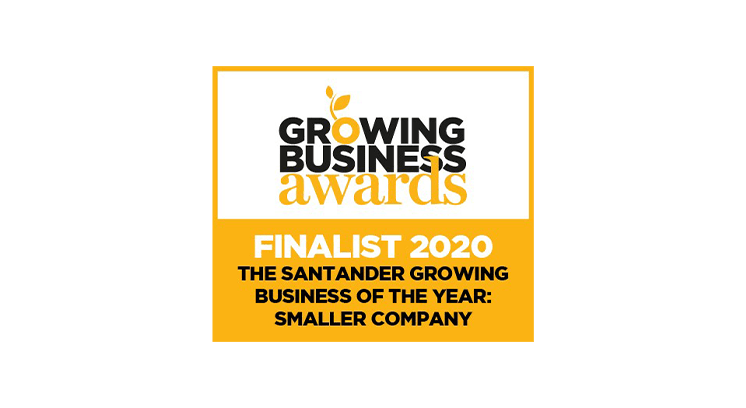What Is The Future Of Field Service Management?
Field service management (FSM) and field service management software has revolutionised service delivery. Those responsible for the smooth operation of field service organisations find themselves in the unenviable position of continuously ensuring their customers receive fast, efficient, and effective service.
The pace of revolution in the field service industry shows no signs of slowing down, despite immense pressure to reduce costs and downsize resources. 2023 will be far from a normal year, and service industry trends are changing fast. With all of this in mind, here are the three trends influencing and changing field service that you should know.
Trend One
Lingering Effects of Covid-19 on Field Service
FSM software adoption and the pandemic of 2020 go hand-in-hand. In a nutshell, COVID-19 has catalysed field service organisations’ need to embrace digital transformation. Worldwide lockdowns forced organisations to find safer, more innovative ways to deliver service. Initially, it was bedlam, as we all remember; 55% of service managers and executives reported that the pandemic negatively impacted their businesses (Verizon Connect, 2021). With hindsight, this feels like an understatement.
Combatting service disruption revealed one consistent trend across service organisations: investment in technology. By Q1 of 2021, service providers doubled investment in technology, growing from 32% in 2019 to 64% (eECI Survey, 2021). This investment was essential due to many people suddenly working remotely.
Necessity is the mother of invention. The global health crisis was a cold wake-up call for everyone in the services industry. FSM software promised (and delivered on) the ability to continue service remotely with fast deployment and scaling. These digital technologies helped companies deliver service even when face-to-face contact was impossible.
Field service platforms helped transition essential business processes to remote. Employee work order management, site scheduling, job costing, and tools for document management became contactless, powered by mobile apps. Online process management and real-time data by keeping track of all moving parts. Some service organises not only survived this, but they thrived, making this transition to digital permanent.

Results
The pandemic still has lingering effects. The afterglow has likely reached the point where businesses no longer need to make pandemic-related adjustments. An ECI survey published in Field Technologies Online found that 45% of service industry respondents said they are not making any other immediate changes to mitigate the impact of COVID-19. So you probably don’t want to be left behind.
The key takeaway:
Field service management solutions offer limitless scalability and greater operational capacity. These attributes help forward-thinking businesses act before a disruption occurs, tapping into growth opportunities with minimal risk. This adoption trend will likely continue in the broader market even as pandemic-related adjustments become fewer.
Trend Two
Rising Customer Service Expectations
Customers are demanding more. Despite the challenges field service organisations face, customer expectations have skyrocketed, and we’ve all felt this. But what does this look like in practice?

Expectation One: Customers Want Faster Response Times
In their research, faster response times (67%), increased remote service options (58%), and a better understanding of asset performance and asset condition (42%) were the key areas customers demanded the most. Interestingly, these are three essential components within a servitised model, where there is a shift from focusing on strict SLA adherence to focusing on guaranteed uptime.

Expectation Two: Customers Demand Greater Transparency in Service Requests.
Customers want to be well-informed on the specifics of their service requests. They need more visibility in their requests with quick and easy access to information like appointment calendars, technician details, and the ability to track their live ETA. FSM software can meet this expectation by streamlining your customer communications and boosting visibility between the technician, the organisation and the service user.
These tools will allow your field workers to collaborate with customers to resolve issues. Investment in tools which enable this will (or should be) be a key priority for many in the market.

Expectation Three: Customers Desire Remote Service or Self-Service Capabilities
This shift will see organisations invest more in client self-service portals to cater to these customer needs of 24/7 online support. Moreover, vital information like knowledge bases, FAQs, and other resources will be accessible to service users.
Customers can leverage a self-service portal to create service requests and share critical information regarding the device. They can view past service calls and get their queries resolved without engaging a technician. A self-service portal is a great way to empower your customers, a key driver of satisfaction and long-term retention (SaleCycle, 2023)
The key takeaway:
Meeting increasing customer expectations is the biggest challenge your service organisation will face today. There is an urgent need to evolve service design and delivery to meet rising consumer expectations. Data has to be seen as the enabler and critical consideration criteria for FSM solutions. Customers expect nothing less than exceptional, and improving customer experience must be at the heart of your service-oriented business.
Trend Three
The Future of Field Service Management
Following a decade of record growth, the market is not slowing down. Mordor Intelligence reports the Global Field Service Management Market will register a CAGR of 15.12% during the forecast period (2022-2027).
According to Allied Market Research, the field service industry is expected to rise to $29.9 billion by 2031 from $5.2 billion in 2021.
Why is this important?
It’s a good question and one I usually ask when presented with arbitrary statistics. As more enterprises adopt field service management solutions, they drive growth in the value placed upon the market. Constant innovation and continuous transformation over the last two decades have provided field service providers (FSPs) with more choices when they go to market for new FSM technologies. These platforms allow FSPs to elevate and expand their service delivery – an evolution staff and customers enjoy. This drives up the value of their service delivery. Happy customers pay more for higher-quality service. Keeping customers satisfied increases retention and overall lifetime value.
The key takeaway:
Many organisations are adopting sophisticated FSM solutions as we speak. As more organisations adopt FSM solutions, competition follows. This competition increases the need for better and more capable solutions to deliver better and more competitive services. Every business has different field service management (FSM) needs, and regardless of your market position, there is always time to invest in innovative new service technologies.
Closing Thoughts
Each trend above shapes how field service providers can deliver service. Each challenge can be viewed as an opportunity. The possibility of becoming more proactive in providing service is an alluring one – and one you don’t want to miss. Those companies that can successfully understand and incorporate these trends into their operations have the best chance of success in the future.











